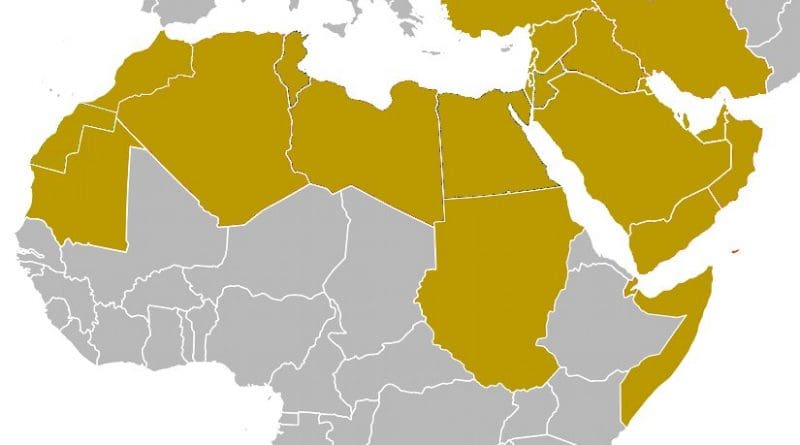World Economic Forum On the Middle East And North Africa To Focus On Building New Platforms Of Cooperation
The World Economic Forum on the Middle East and North Africa will be held at the Dead Sea in Jordan on 6-7 April 2019 in partnership with the King Abdullah II Fund for Development (KAFD). This will be the 10th meeting in Jordan and 17th meeting in the region. The meeting will convene more than 1,000 government, business and civil society leaders from over 50 countries.
Under the theme “Building New Platforms of Cooperation”, the meeting will focus on four transformational imperatives: Shaping a new economic and social model for the region; environmental stewardship in the Arab world; finding common ground in a multiconceptual world; and the Fourth Industrial Revolution in the Arab world.
“The region is at a pivotal time of taking the bold decisions necessary to future-proof its societies and economies. At this meeting, we will hold several strategic dialogues, with particular attention on the relationship between the public, private and civic sectors, the impact of the Fourth Industrial Revolution on skills and jobs, and new initiatives to help resolve long-standing conflicts,” said Mirek Dusek, Deputy Head of Centre for Geopolitical and Regional Affairs and Member of the Executive Committee at the World Economic Forum.
For his part, Chairman of KAFD’s Board of Trustees Alaa Batayneh said, “Having Jordan host the World Economic Forum on the Middle East and North Africa for the 10th time reaffirms the importance of Jordan’s political and economic position within the region.” “The Forum offers an international platform to highlight the priorities and plans of Jordan and the region, in the fields of development, energy, technology applications, and natural resource management,” he added.
With the full support of the host country and presence of Their Majesties King Abdullah II bin Al Hussein, Queen Rania Al Abdullah and H.R.H. Crown Prince Al Hussein bin Abdullah II of the Hashemite Kingdom of Jordan, the meeting will bring together leaders from Gulf Cooperation Council countries, the Levant and North Africa, as well as key international stakeholders from East Africa, Europe and the United States.
The Co-Chairs of this year’s meeting are: Khalid Al Rumaihi, Chief Executive, Bahrain Economic Development Board, Bahrain; Thani Ahmed Al Zeyoudi, Minister of Climate Change and Environment of the United Arab Emirates; Rania A. Al-Mashat, Minister of Tourism of Egypt; Alain Bejjani, Chief Executive Officer, Majid Al Futtaim Holding, United Arab Emirates; Wafa Ben-Hassine, MENA Policy Counsel, Access Now, USA; Sumantra Chakrabarti, President, European Bank for Reconstruction and Development (EBRD), London; Tony F. Chan, President, King Abdullah University of Science and Technology (KAUST), Saudi Arabia; and Sigrid Kaag, Minister for Foreign Trade and Development Cooperation of the Netherlands.
For the second time, the World Economic Forum is partnering with the Bahrain Economic Development Board to bring 100 Arab start-ups to the meeting. The initiative aims to further integrate entrepreneurs into a national and regional dialogue on pressing challenges. More than 400 applicants representing 17 countries and spanning numerous sectors including finance, energy, health, environment, media and education applied. Among the selected start-ups are Careem (UAE) – also included in the 2017 selection – the region’s first “unicorn”, which was recently sold for $3.1 billion; Coded (Kuwait), the first coding boot camps for the Arab world; Proximie (Lebanon), a company that uses augmented reality for surgeons to contribute remotely to clinical procedures; and Wahed (UAE), the world’s first halal investment platform.
The meeting will also focus on highlighting long-term approaches to responding to systemic issues. For example, the Humanitarian Investing Initiative, launched at the Forum’s Annual Meeting in Davos, will showcase innovative approaches to investing that respond to the long-term challenges of protracted humanitarian crises. Taking this long-term approach, other sessions will feature solution-based, forward-looking dialogues on issues of healthcare, energy, water, gender equality, the future of jobs, cybersecurity and more.

